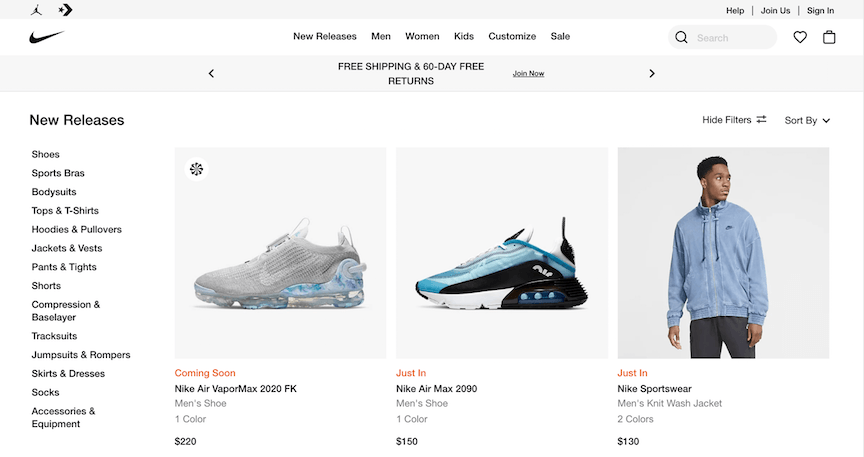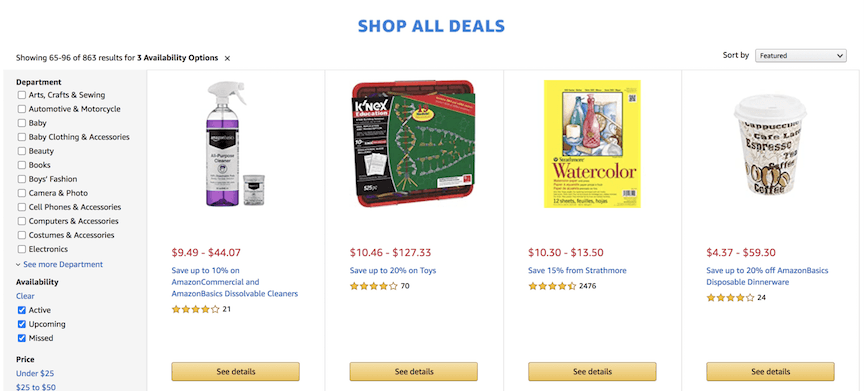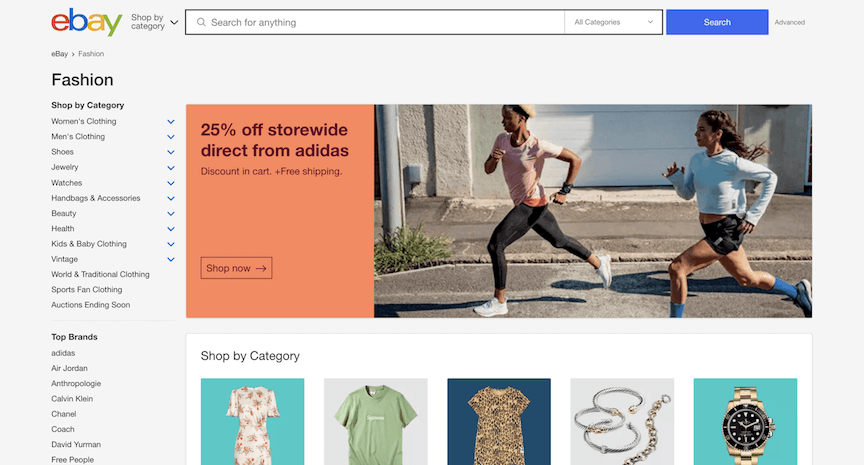Types of Ecommerce Websites: Which Is Right for You?
There are as many as 24 million ecommerce websites online today. These ecommerce sites encompass a wide variety of site types, ecommerce platforms, business models, and industries.
Understanding the various types of ecommerce websites can help you choose the option that’s right for you. Keep reading to learn about the most common types of ecommerce stores.
Want help creating an ecommerce website or growing your existing online store? Check out our ecommerce website development and ecommerce marketing services.
Campaigns managed by WebFX have earned overPartner with Ecommerce masters!
TRANSACTIONS IN THE LAST 5 YEARS
2 types of ecommerce websites
One of the biggest differences between types of ecommerce websites is the number of businesses that have products on the site.
Here are two common categories of ecommerce stores:
- Vendor-specific websites
- Multi-vendor online marketplaces
Let’s look at each type of ecommerce site.
1. Vendor-specific websites
Vendor-specific ecommerce websites are built for and run by an individual business, and that business is the only seller on the site. These sites are the most common type of ecommerce store.
Brick-and-mortar stores may use this option to create an online version of their physical stores, and online-only stores can use it as well.
To create a vendor-specific website, you can hire a developer to create a website from scratch or use one of the many available ecommerce platforms and website builders.
These types of ecommerce stores offer the advantage of having your own branded space to sell your products. They involve more effort than other options, though, since you have to build and manage your own site.
Nike’s website is a great example of a vendor-specific ecommerce website:

2. Multi-vendor online marketplaces
Multi-vendor online marketplaces feature products from numerous sellers. Examples include Amazon, eBay, and Etsy. Although these marketplaces are fewer in number than single-vendor online stores, they account for more than half of ecommerce sales.
The website owner creates and manages the site and sometimes sells products on it as well, as is the case with Amazon. Third-party sellers, which range from individuals to large corporations, offer products through the site and can often set up their own profiles or pages.

Sites like this are useful if you’re just getting started with ecommerce since you don’t have to set up your own site. You can also use them even if you have your own vendor-specific website since they help you reach a broader audience.

Which option is right for me?
If you want your own branded space over which you have complete control, choose a vendor-specific website.
If you’re just starting out, you can choose the online marketplace approach. Even if you start with the marketplace option, you should aim to eventually create your own vendor-specific ecommerce website.
If you go the vendor-specific route, though, consider also using an online retailer or marketplace. Using multiple store types will give you access to a broader audience of potential customers.
Types of ecommerce platforms
If you opt for creating your own vendor-specific website, you have another choice to make. There are numerous options when it comes to ecommerce platform types. Here are some of the most common types of ecommerce platforms.
Software as a Service (SaaS)
Software as a Service (SaaS) is one of the most popular types of ecommerce platforms. With this option, you access the software you need to run your store through the Internet. The software is hosted in the cloud rather than on your equipment.
These platforms typically provide numerous options for templates, and the software provider takes care of many aspects of your website’s operation, such as security and software updates.
SaaS platforms are easy to use and don’t require you to install anything, but you give up some flexibility and control over your site.
Examples of this option include Shopify, 3dcart, and BigCommerce.
Open-source platforms
With open-source ecommerce platforms, the platform’s source code is publicly available, and you can alter it in any way you choose.
Open-source solutions give you more flexibility, but you’re also responsible for more aspects of managing your site. You’ll have to install updates manually, manage security, and ensure your site is compliant with the Payment Card Industry (PCI) Data Security Standard.
Some open-source options are hosted in the cloud, while others require you to host your site on your own server.
This option offers much more flexibility and control over your site. It requires more technical knowledge, however, so if you don’t have a web developer on your team, you may need to hire one.
Examples include Drupal, Magento, and OpenCart.
Platform as a Service (PaaS)
Platform as a Service (PaaS) combines aspects of SaaS and open-source. You have complete control over the look and functionality of your site, like with open-source. However, the PaaS provider will handle hosting, updates, security, and other management tasks.
PaaS ecommerce platforms are a useful option if you want more control over your website but don’t want to worry about hosting and infrastructure. You’ll need to have web development knowledge or hire a developer, but you won’t have to host your own software.
Popular PaaS options include Oracle CX Commerce and Magento Commerce.
Partner with Ecommerce Masters!

Licensed ecommerce software
Under this model, you purchase a license to use an ecommerce software platform. You can typically use the software indefinitely, and your purchase might come with support and updates. The license will lay out what you can do with the software.
With licensed ecommerce software, you’ll typically need to find your own hosting and install and update the software yourself.
Headless commerce solutions
Under the headless commerce model, ecommerce functionality is decoupled from the front end of the website. So, you can purchase a headless commerce solution and add it to any website.
This option is useful if you have an existing website and want to add ecommerce functionality to it. You also get more control over your site’s content section without having to handle ecommerce functionality yourself.
BigCommerce, CommerceTools, and others offer headless commerce solutions.
Proprietary ecommerce software
Proprietary ecommerce software is software that a business builds for its own use. With this approach, you take care of everything yourself, from building the platform to hosting it to managing it.
The propriety software model gives you complete control, but it is resource-intensive and requires considerable expertise. Typically, only large, established businesses create proprietary ecommerce software.
Which option is right for you?
The most notable trade-off when it comes to ecommerce platform types is flexibility and control vs. ease of use. If you want total flexibility in setting up your site, you’ll need more time, resources, and expertise. If you want ease of use, you sacrifice some flexibility and control.
Although your experience will vary depending on the specific platform you use, here are the various ecommerce platform types roughly in order of easiest to use and least flexible to most resource-intensive and flexible.
- SaaS
- Headless
- PaaS
- Open-source and licensed
- Proprietary
Launch and grow your ecommerce business with WebFX
You have lots of options when it comes to setting up an ecommerce store. An experienced ecommerce web development company like WebFX can help you create an ecommerce website that meets your business’s needs.
In addition to ecommerce web development, we provide expert ecommerce marketing services that help you grow your online business.
Request a free quote or call us at 888-601-5359 to learn more today.